MANDELRING QUARTETT - Mendelssohn Bartholdy: Complete Chamber Music for Strings, Vol. 3 (2013)
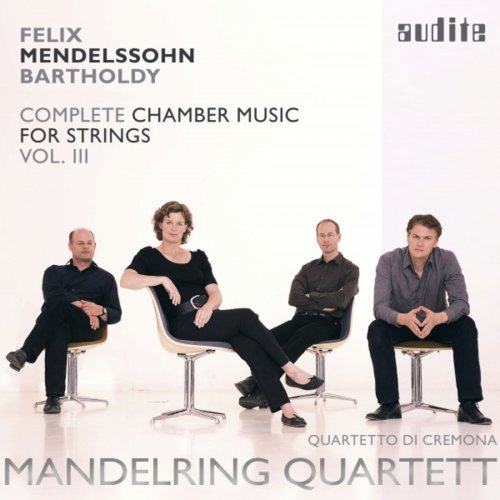
Artist: MANDELRING QUARTETT
Title: Mendelssohn Bartholdy: Complete Chamber Music for Strings, Vol. 3
Year Of Release: 2013
Label: Audite
Genre: Classical
Quality: FLAC (tracks)
Total Time: 73:54 min
Total Size: 361 MB
WebSite: Album Preview
Title: Mendelssohn Bartholdy: Complete Chamber Music for Strings, Vol. 3
Year Of Release: 2013
Label: Audite
Genre: Classical
Quality: FLAC (tracks)
Total Time: 73:54 min
Total Size: 361 MB
WebSite: Album Preview
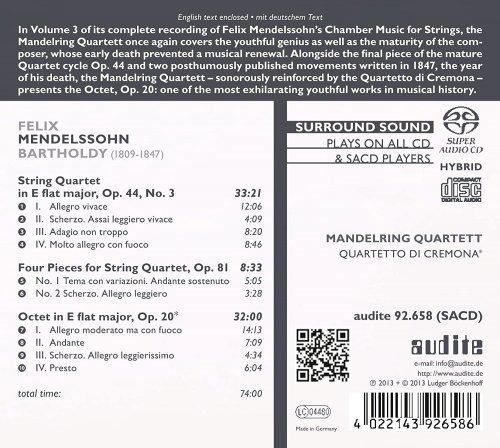
Tracklist:
01. String Quartet in E-Flat Major, Op. 44 No. 3: I. Allegro Vivace
02. String Quartet in E-Flat Major, Op. 44 No. 3: II. Scherzo. Assai leggiero Vivace
03. String Quartet in E-Flat Major, Op. 44 No. 3: III. Adagio non Troppo
04. String Quartet in E-Flat Major, Op. 44 No. 3: IV. Molto allegro con Fuoco
05. Four Pieces for String Quartet, Op. 81: Tema con variazioni. Andante Sostenuto
06. Four Pieces for String Quartet, Op. 81: Scherzo. Allegro Leggiero
07. Octet in E-Flat Major, Op. 20: I. Allegro moderato ma con Fuoco
08. Octet in E-Flat Major, Op. 20: II. Andante
09. Octet in E-Flat Major, Op. 20: III. Scherzo. Allegro Leggierissimo
10. Octet in E-Flat Major, Op. 20: IV. Presto
Felix Mendelssohn did not write his six mature string quartets continually, but instead at particular pivotal points in his life and compositional career. In his youth, studying Bach and Beethoven proved to be fruitful, and later in life he was inspired by the exceptional violinist Ferdinand David to write his three Quartets Op. 44 between 1837 and 1839 (represented on this SACD by the final work in E flat major). They document the mature, formally assured Mendelssohn who sums up his instrumental writing: brilliantly composed (particularly for David's violin), full of color and formal attractions, romantic in their conduct. After completing his Quartet Op. 80 (contained in the second volume of the complete recording), Mendelssohn had not much time left to revisit and renew the string quartet. Two single surviving movements - a tenderly transfigured, but also irascible, Andante with five variations and a whispering Scherzo- were integrated into Op. 81 after Mendelssohn's death. To Mendelssohn admirers, this Scherzois faintly reminiscent of the Scherzo in the Octet Op. 20 with which the sixteen-year-old Felix, in a coup de main, created a new genre: 'symphonic' chamber music where all 'pianos and fortes need to be very precise and clearly separated and more distinctly emphasized than it is normally the case with pieces of this genre.' The jubilant opening of the octet, the romance-like Andante, the elastic, elf-like Scherzo and the rapid fugal finale - every movement is proof of the resourcefulness and the youthful genius of this 'lovely episode in German music', as Friedrich Nietzsche once referred to the composer Mendelssohn.'




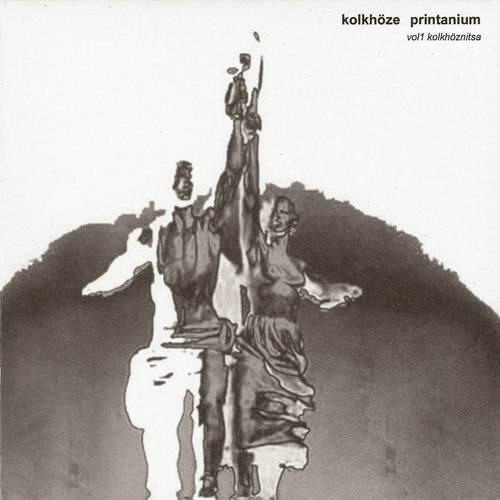
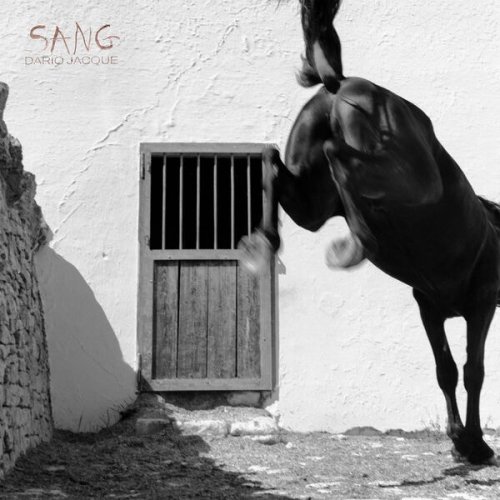
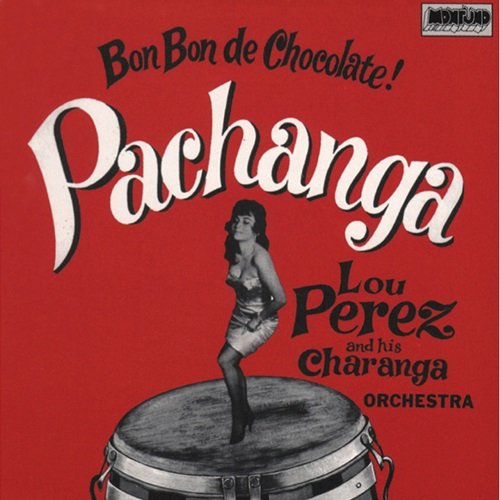
![Marcela Arroyo & Quique Sinesi - Reflejos (2026) [Hi-Res] Marcela Arroyo & Quique Sinesi - Reflejos (2026) [Hi-Res]](https://www.dibpic.com/uploads/posts/2026-02/1770728206_folder.jpg)
